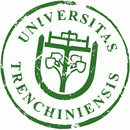Horizon Europe
101087154: GlaCerHub PROJECT Glass-ceramic innovation ecosystem for implementation of new research directions in applications. Riešiteľ: prof. Ing. Dušan Galusek, DrSc.
Anotácia: Productivity, competitiveness, and economic growth stem from innovation and are vital in collaborative research projects. However, given the heterogeneity of economic and industrial frameworks between North/Western Europe and South/Eastern Europe, open calls for European funded research projects often exacerbate the knowledge gap between more and less developed regions. This in turn, limits the economic impact of this funding on areas that often need it the most. Czechia and Slovakia have been growing their gross domestic expenditure on R&D, almost doubling it since 2005. However, this growth does not directly equal innovation, with patent applications per million of the population not reaching 15% of the EU benchmark. The GlaCerHub project will strive to support the virtuous innovation and economic cycle by capitalizing on the present-day competitive advantage of the advanced glass and ceramics industry to create a place-based innovation ecosystem in the border region between South Moravia (Czechia), and Trenčín (Slovakia), a region with long tradition in these areas. The GlaCerHub consortium will create a dynamic, specialist innovation ecosystem for the advanced glass and ceramics sector by stimulating new synergies between industry, academia, government, society and other European innovation Ecosystems. In the long term GlaCerHub will become a self-sustaining entity, supporting the creation, development, piloting and protection of strategic technologies, training of all stakeholders from the quadruple helix, and creating and supporting technology transfer.
101129967: EverGLASS PROJECT The New Role of Glass in a Sustainable Society. Technology for the Integral Recycling of Glass. Riešiteľ: Trenčianska Univerzita Alexandra Dubčeka v Trenčíne
Anotácia: Glass recycling uses mature technology limited by high energy consumption to melt tons of glass and the inflexibility of a heavy-duty system. Current technology only allows the recycling of certain glasses and a very small amount of waste generated. A new technology is required to allow the integral recycling of all types of glass, drastically reducing the carbon footprint. EverGLASS proposes to develop a radically new technology called “glass laser transformation” for on-site glass recycling and the generation of customized or technical products. Users will feed waste into a new machine and select which new product to get. The vision is ambitious, as it aims to bring to the consumer market a novel technology to enable virtually infinite reuse of glass. It is also radical since, through a multipurpose system capable of being located on any site, it proposes an alternative approach to the traditional centralized recycling process (particularly where this model is not possible, generating thousands of tons of glass waste annually taken to landfills). The new technology goes beyond the current limitations of the systems (high energy use, expensive and rigid process, strong logistical requirement), adopting a highly environmentally friendly model that will allow flexibility in the use of the material and in the process. Therefore, EverGLASS has the potential to revolutionize recycling as a concept. It also addresses one of the main problems with recycling, user participation, in an innovative way by allowing the personalization of recycled items of different use. Finally, it aims to encourage the use and reuse of glass as a quality material, displacing more environmentally problematic materials, such as plastics. This project brings together experts from advanced laser technologies (UVIGO), glass and ceramics science (ICV-CSIC), glass processing and engineering (TnUAD), risk and impact assessment (ACTALIA), Social Sciences (ESCI) and numerical simulation (ITWM).
101120555: CLiCAM PROJECT Cultivating Leaders for Innovative Coatings and Additive Manufacturing. Riešiteľ: prof. Ing. Dušan Galusek, DrSc.
Anotácia: Too often, great research ideas as well as talented researchers from Europe are acquired by non-European players who turn them into impactful innovations whose economic benefits are realized outside the EU. In addition, the innovation divide between the widening countries and the other member states persists (patent applications per million inhabitants not reaching 15% of the EU benchmark). The problem of the inability to transform the potential of basic research into the development of commercially viable innovations thus becomes a serious obstacle for the sustainable economic development of countries such as the Czechia, Poland, and Slovakia. In response, the CLiCAM project will cultivate participating ERA talents into leaders who will make innovation happen through intersectoral collaboration. The innovation leadership provided by ERA talents shall transform participating research organisations from widening countries into innovation beacons turning basic research into sustainable prosperity in fields of coatings and additive manufacturing. In doing so, the project will create an R&I ecosystem contributing to the development of relevant key enabling technologies across three domains critical for Europe’s technological sovereignty: advanced manufacturing, advanced materials, and life-science technologies. The actions of the consortium will concern three pillars of innovation: (i) people – cross-sector secondments and Innovation Leadership training, ii) processes – reintegration actions and benchmarking initiative, iii) infrastructure – two virtual test bed ecosystems for better use of existing research facilities. The long-term impact will be to strengthen human capital base in R&I (qualified personnel for impactful innovation), initiate technology transfer activities (patent applications, licensing transactions, contractual research) and generate future R&D investments (intersectoral research projects, virtual test bed ecosystems, spin-offs).




